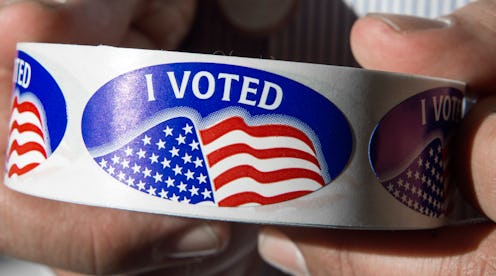News
How Was The Turnout in Nebraska?
The presidential primaries are marching along, even though there isn't nearly as much drama left anymore. Even with the Republican Party coming to grips with the reality of presumptive nominee Donald Trump, and the ongoing candidacy of Vermont Sen. Bernie Sanders (despite the staggering odds against him winning the nomination), things are starting to wind down, preceding the big gear-up for the general election in November. But there are still several states in the union that haven't gotten to vote yet, and Nebraska had its turn on Tuesday night. So, how many people voted in the Nebraska primary?
By and large, the Republicans have tended to have better turnout than the Democrats throughout the 2016 presidential primaries, although there have been some notable exceptions. That's caused a lot of conversation about whether the Democrats are facing an enthusiasm gap, although it bears mentioning (as FiveThirtyEight's Harry Enten noted in March) that historically, primary turnout and general election turnout aren't related.
But it's an interesting question all the same. In this case, unfortunately, a direct comparison between the two sides is shaky, since the Democrats held a caucus in Nebraska (all the way back on March 5), while the Republicans held a full-fledged primary on Tuesday.
In any event, here's where things stood at the end of voting on Tuesday night: a total of 194,604 Nebraska Republicans headed to the polls. They made their preference very plain, too — at time of writing, 119,531 of them handed a more than 40-point victory to Trump, while Ted Cruz and John Kasich (both of whom are no longer in the race) mopped up nearly 30 points between them.
When you compare this to 2012, when Mitt Romney was en route to winning the nomination, you can see that more people turned out this time around — back then, just 185,402 people voted in Nebraska's GOP primary. In fairness to Romney, he did win more votes in that primary than Trump did, with 131,436 compared to Trump's 119,531, but he'd had the nomination effectively clinched for quite a while by then, while Trump was fending off the credible threat of a contested convention until as recently as last week.
In any case, 2016's turnout did just edge out 2012's, which under normal circumstances would be cause for some enthusiasm on the part of the Republican establishment. These aren't normal circumstances, however — it remains to be seen whether the Republican Party will truly, fully line up behind Trump, or whether there's a deeper fracture in the months to come. The only thing that seems clear is that the actual voters are coming out in droves for him, as he's on pace to finish with more total primary votes than any Republican ever.
